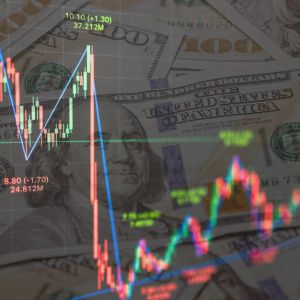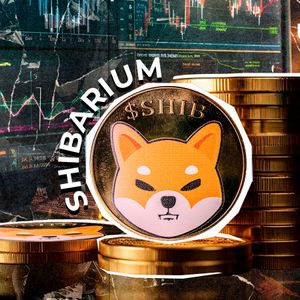Summary Bitcoin has proven itself as a store of value, diversification tool, and monetary hedge, especially in today's macro environment. Recent price action shows Bitcoin outperforming stocks even amid higher yields, signaling a fundamental shift in its market behavior. With US debt at unsustainable levels, monetary inflation is likely, making Bitcoin an essential hedge against fiscal irresponsibility. I remain highly bullish and advise investors to accumulate Bitcoin as a long-term hold for protection and growth. Thesis Summary Crypto was referred to as “rat poison” by Warren Buffett years ago, a sentiment which was recently echoed by a JPMorgan ( JPM ) employee. The timing could not be more ironic, with Bitcoin ( BTC-USD ) breaking new all-time highs and outperforming stocks even in a regime of higher yields. Far from rat poison, Bitcoin has provided investors with much-needed diversification from US financial assets and US currency exposure. Bitcoin, especially in the last few months, has proven itself as a monetary hedge, and with the macro regime we are facing, it’s never made more sense to own Bitcoin than today. I continue to advise investors to accumulate Bitcoin as a long-term hold. Interesting Timing Last week, President Trump was quoted on Twitter saying that the US is leading China in crypto. As a response to this, a former JPM employee, Marko Kolanovic , echoed Buffett's infamous words and tweeted that we are leading China in distributing rat poison . Curiously enough, less than a week later, JPMorgan CEO Jamie Dimon announced the bank would be facilitating Bitcoin buying for its clients. While there are certainly some arguments to be made against the broader crypto space, I think we are well past the point of calling Bitcoin itself rat poison. Since its launch over 10 years ago, Bitcoin has proven itself as a store of value, a valuable diversification tool, and more recently, an actual hedge against monetary inflation and fiscal irresponsibility. What is Bitcoin? As an asset that is costly to create and has a limited supply, it is a store of value. (Not to be confused with price). A Bitcoin has some intrinsic value, and this will never be eroded through big changes in the supply. But where does Bitcoin demand come from? A few years ago, it was a niche subsector of the population: anarchists, libertarians, gold bugs, and tech enthusiasts. Then it became retail investors, who started to buy through exchanges. Shortly after, companies joined the game, followed by financial institutions and even sovereign nations. Does over 10 years of this trend not validate the demand side of the equation? Liquidity Barometer As a more “speculative” asset, Bitcoin’s prices have fluctuated with changes in global liquidity. Bitcoin/Liquidity (X) Global liquidity can be broadly understood as the amount of currency chasing assets around the world. More currency generally translates into higher asset prices, although not necessarily inflation. This is why stocks saw a big rise after COVID and also why Bitcoin rallied. Bitcoin: Now More Than Ever However, something even more interesting has happened in the last few months. Firstly, Bitcoin has outperformed other “risk assets” in the last six months. Even through geopolitical uncertainty, Bitcoin is making new highs while the SPX hasn’t yet. BTC vs SPX (TradingView) More importantly, Bitcoin has managed to rise in what we could even call a context of tightening liquidity/financial conditions, as measured by the 10-year yield in US Treasuries. BTC vs Yields (TradingView) Traditionally, the formula was yields down, Bitcoin up. However, in the last six months, we have seen yields up and Bitcoin up. This could suggest there is a fundamental shift in the Bitcoin market, which may be moving much more in line with, for example, gold, another monetary hedge. Trump Has Already Failed Therefore, we can highlight two very important developments in Bitcoin over the last three months. Bitcoin is outperforming traditional assets and moving higher with yields. It has become a hedge. Bitcoin and other assets are signalling that Trump has already failed in his policies. While President Trump came in with seemingly good intentions, a lot of his actions have fallen short of expectations. Tariffs have not been implemented yet. DOGE has barely made a dent in the budget. With aggressive tax cuts planned, the budget deficit could further increase in the next decade. In short, the "status quo" looks ready to remain in place, with higher spending, and the US dollar continuing to hold its place as a reserve currency. This is going to require a much weaker dollar, something we have seen, and much higher inflation. Even the most "radical" President in over two decades lacks either the will, support, or conviction to change things meaningfully. Bitcoin Is Inevitable Out of all the charts shown today, none is as important and explains what’s happening with Bitcoin as the one below. US Debt-GDP, Inflation, Yields (FRED) The US debt-to-GDP ratio is at wartime levels. It is definitely unsustainable, and the most likely outcome now is that we will reduce this debt burden through monetary inflation. This means money printing, yield curve control, and even possibly capital controls/financial repression. All things that happened in the 1960s and 1970s, and led to high inflation and high yields. However, it did successfully serve to bring down the debt-GDP levels. A win for the US government. A win for savvy investors. But a big loss for currency holders. The world is waking up to this reality again, but this time, the tools to hedge are much more widely available and accessible. Risks The real risk to Bitcoin would be a situation where the world actually makes a coordinated effort to reduce deficits through lower spending while simultaneously making some kind of return to hard money. By hard money, I mean a policy in which fiat currencies maintain a stable price in terms of gold. But even in this case, the hyper-financialised economic system we live in would have to be dialed back, and while Bitcoin would suffer, it could still prove more resilient than other financial assets. Beyond that, I'd argue the only other risk to Bitcoin is developments in quantum computing that could make Bitcoin vulnerable. As of writing this, I'd argue Bitcoin is even more secure than string gold in a vault, but this could actually change one day. Final Thoughts All in all, I remain very bullish on Bitcoin. It is perhaps one of the assets you can buy today with the highest conviction, in my opinion. Much more than a speculative risk asset, Bitcoin is now officially a hedge against fiscal irresponsibility and a debt crisis. Bitcoin isn't rat poison, it's the solution.



















